April 14, 2025 | 18:09 GMT +7
April 14, 2025 | 18:09 GMT +7
Hotline: 0913.378.918
April 14, 2025 | 18:09 GMT +7
Hotline: 0913.378.918
The Ministry of Agriculture and Rural Development (MARD) has just issued Document No. 884/BNN-TS to the chairpersons of the People's Committees of coastal provinces and centrally governed cities, regarding the continued implementation of the enforcement of administrative violations in the fisheries sector at the local level.
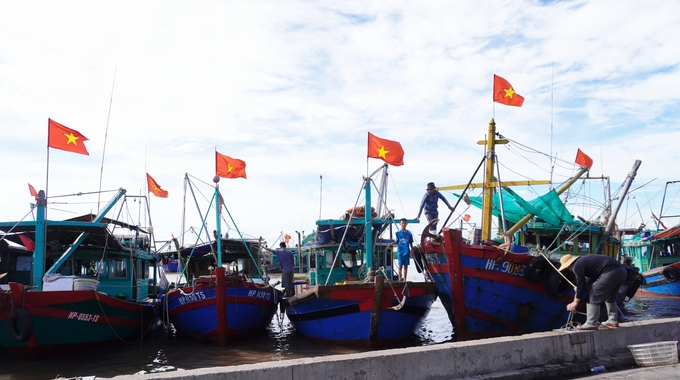
MARD requests the chairpersons of the People's Committees of coastal provinces and centrally governed cities to direct and ensure that local agencies and departments strictly implement administrative violation handling in the fisheries sector, particularly addressing violations related to IUU. Photo: Hong Tham.
The document states: Implementing the direction of the Prime Minister as per Official Announcement No. 403/TBVPCP dated August 31, 2024, from the Government Office regarding the Prime Minister Pham Minh Chinh’s conclusion at the meeting on combating illegal, unreported and unregulated (IUU) fishing, and Conclusion No. 30/KL-VPCP dated January 25, 2025, informing the conclusion of Deputy Prime Minister Tran Hong Ha at the 12th meeting of the National Steering Committee on Combating IUU Fishing on January 7, 2025, the Ministry of Agriculture and Rural Development (MARD) issued Official Letter No. 203/BNN-TS to the Chairmen of People's Committees of coastal provinces and cities, continuing to direct and urge local agencies, departments and sectors to seriously implement administrative violation handling in the fisheries sector, particularly violations related to IUU.
On January 28, 2025, the Government Office issued Document No. 290/PC-VPCP regarding the transfer of Document No. 300/KL-BTP dated January 17, 2025, from the Ministry of Justice about the conclusions of the inspection of the implementation of the law on handling administrative violations in the fisheries sector at the People's Committee of Phu Yen Province.
To meet the practical requirements, minimize administrative violations related to illegal fishing, achieve the goal of lifting the "yellow card" warning from the European Commission (EC) and build a sustainable and effective fisheries industry, the Ministry of Agriculture and Rural Development requested the Chairmen of People's Committees of coastal provinces and cities to direct and urge local agencies, departments, and sectors to strictly implement the handling of administrative violations in the fisheries sector, especially violations related to IUU. In this regard, attention should be given to the following issues:
- First, improve the legal framework: Regularly gather difficulties and obstacles related to combating IUU fishing; proactively issue regulations within their authority or provide advice and proposals to competent authorities on how to address legal provisions regarding the handling of administrative violations, especially those regulations on IUU fishing that are not suitable or not feasible.
In cases where there are difficulties or challenges in applying legal regulations related to IUU (especially provisions in Decree No. 37/2024/ND-CP, dated April 4, 2024, amending and supplementing certain articles of Decree No. 26/2019/ND-CP dated March 8, 2019, detailing several provisions and measures for the implementation of the Fisheries Law, and Decree No. 38/2024/ND-CP dated April 5, 2024, which governs administrative penalties in the fisheries sector), local authorities such as Provincial People's Committees, Departments of Agriculture and Rural Development, and other relevant agencies should actively and promptly send official reports to MARD for coordination and resolution.
- Second, strengthen patrol, inspection, and surveillance efforts for IUU fishing: The Department of Agriculture and Rural Development (DARD) and other relevant provincial agencies and units should further enhance patrol, inspection, and surveillance activities within the fisheries sector. It is necessary to identify key areas with high-risk targets and fishing vessels that may be involved in IUU fishing activities to ensure timely detection, prevention, and strict handling of violations, especially those related to IUU fishing.
At the same time, it is important to collaborate with law enforcement and other relevant agencies to thoroughly investigate, verify, and take appropriate legal actions against any fishing vessels found to be engaging in illegal fishing practices, as well as those violating the regulations on vessel monitoring systems. The objective is to ensure that no unlawful activity goes unnoticed.
- Third, on law enforcement: Drawing lessons from the process of imposing administrative penalties, seriously reviewing and clearly identifying violations (if any). Review the responsibilities of the competent authority in imposing administrative penalties and those responsible for advising the competent authority in the application of the law, when the law has been applied inaccurately, incompletely, or leniently, in accordance with the legal regulations on the discipline of officials, public servants, and civil servants, ensuring objectivity, transparency, democracy, fairness and adherence to the law.
For the cases that the local authorities have already processed, it is recommended that they conduct a thorough review and pay special attention to several additional issues, including the following:
The process of preparing a report to verify the facts of an administrative violation must be carried out in accordance with the proper authority, as specified in Article 59 of the 2012 Law on Administrative Violation Handling, as amended and supplemented in 2020 (the Law on Handling Administrative Violations).
The procedure for temporarily confiscating licenses and professional certificates (such as fishing licenses and captain certificates) must be followed strictly in accordance with the provisions of the Law on Handling Administrative Violations, specifically under Clause 1, Article 125, and Item b, Clause 4, Article 125.
After issuing the decision to impose administrative penalties, it is necessary to continue directing the relevant agencies and units to closely monitor the conditions under which the penalty decision will be enforced for the person being penalized. In cases where the person being penalized deliberately evades or delays the enforcement of the decision, the statute of limitations for the execution of the penalty decision will be calculated from the moment the evasion or delay ends.
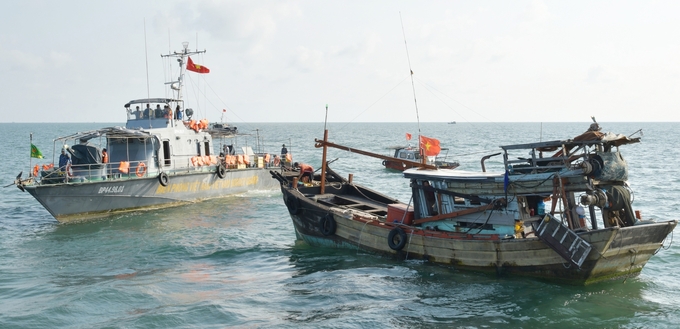
The Ministry of Agriculture and Rural Development directs the enhancement of patrols, inspections and IUU fishing inspections. Photo: Hong Tham.
It is essential to accurately identify the person or entity being subjected to the administrative penalty to ensure compliance with the law and to avoid any violations of actions prohibited under Clause 5, Article 12 of the Law on Handling Administrative Violations.
In the decision imposing the administrative penalty, it is crucial to clearly describe the administrative violation in accordance with the requirements outlined in Point e, Clause 1, Article 68 of the Law on Handling Administrative Violations. Additionally, the description should comply with Note 07 of the Decision Template No. 02, which is issued in conjunction with Decree No. 118/2021/ND-CP, dated December 23, 2021, by the Government. This decree provides detailed guidance on certain articles and measures for emplementing of the Law on Handling Administrative Violations.
In situations where the violator's actions involve aggravating or mitigating circumstances, the relevant principles as specified in Article 9 of Decree No. 118/2021/ND-CP must be applied.
Specifically, the monetary fine imposed for a particular administrative violation should be set at the average level within the prescribed fine range designated for that specific violation. If there are two or more mitigating circumstances, the minimum amount within the fine range should be applied. On the other hand, if there are two or more aggravating circumstances, the maximum amount within the fine range should be applied.
In addition, there are several important aspects to keep in mind throughout the administrative penalty process. First, the decision to impose the administrative penalty must clearly outline details regarding the delivery and receipt of the penalty decision. Furthermore, the records related to the imposition of administrative penalties must be prepared and completed following the official templates provided in the Appendix of forms attached to Decree No. 118/2021/ND-CP.
Finally, it is important that the administrative penalty files are handled with great care. These files must be stored properly and indexed according to the regulations outlined in Clause 2, Article 57 of the Law on Handling Administrative Violations.
Translated by Phuong Linh
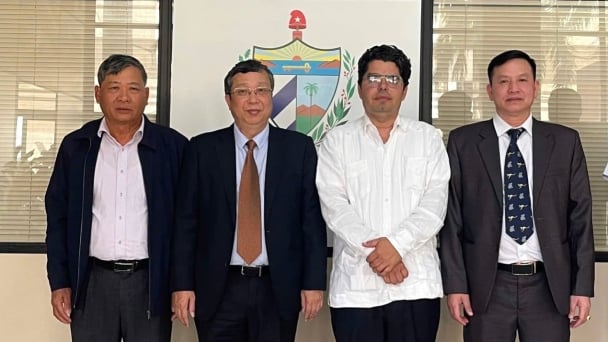
(VAN) The Vietnam-Cuba technical cooperation project to develop rice production phase 5 (2019-2025) has supported Cuba in improving varieties, increasing rice yield and quality.
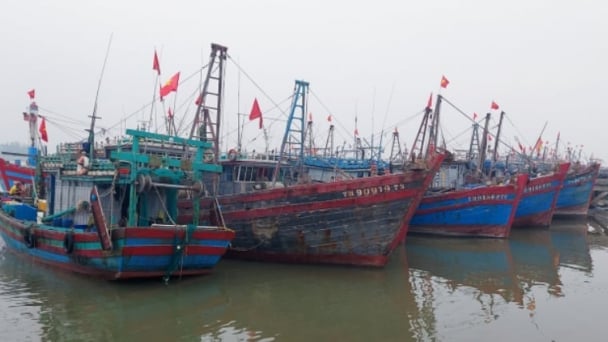
(VAN) The Deputy Minister of Agriculture and Environment underscored the necessity of addressing IUU fishing at the grassroots level and linking it to the accountability of local authorities.

(VAN) According to Deputy Prime Minister Bui Thanh Son, through this P4G Summit, Vietnam aims to convey the message of transforming its growth model towards rapid and sustainable development.
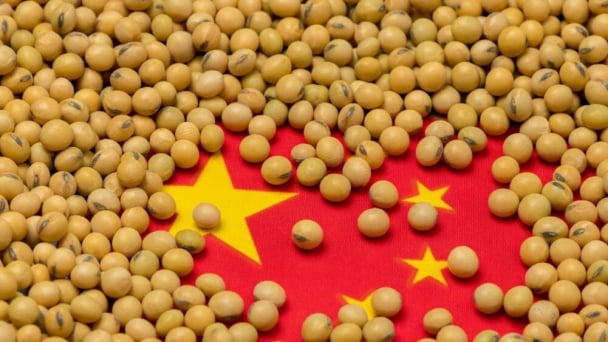
(VAN) Soybean production has been a priority for China to ensure food security, with increased soybean cultivation and yields highlighted in the annual No. 1 Central document.

(VAN) Vietnam Sea and Islands Week 2025 is expected to take place in Quang Binh, featuring a series of meaningful activities aimed at protecting the ocean through green technology solutions.

(VAN) The One Health approach is no longer merely an option, as increasingly complex challenges confront health and food systems.
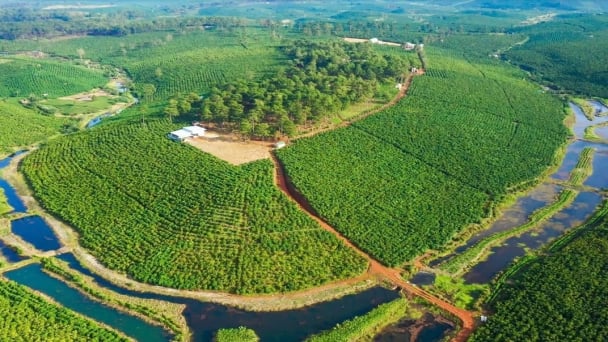
(VAN) The project promoting sustainable coffee production, with a focus on waste management and raising farmers’ awareness, has achieved many positive results after nearly two years of implementation.